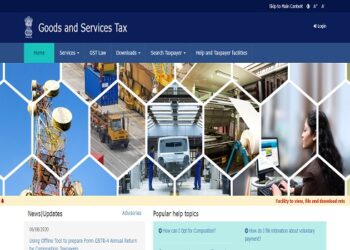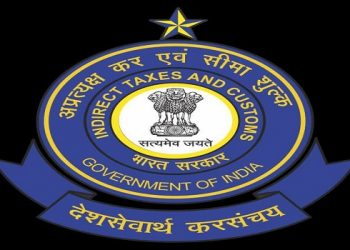The ruling has been passed by GUJARAT AUTHORITY FOR ADVANCE RULING in case of M/s. Adama India Private Limited on 11.08.2021.
RULING:
CSR activities, as per Companies (CSR Policy) Rules, 2014 are those activities excluded from normal course of business of the applicant and therefore not eligible for ITC, as per Section 16(1) of the CGST Act.
Facts of the Case:
The applicant M/s. Adama India private limited, supplies insecticides, fungicides and herbicides. The applicant submits that as per Section 135 of the Companies Act, 2013, it has been spending the mandatory amount on CSR activities in the form of donations to the Government relief funds/educational societies, civil works or installation of plant and machinery items in schools or hospitals, distribution of food kits etc; that the vendors that supply goods/services to the applicant for the purpose of undertaking the CSR activities charge GST on their output supplies; that the applicant intends to avail the Input Tax Credit (ITC) of the inputs and input services being procured for the purpose of undertaking the CSR activities.
Applicant’s query?
The applicant seeks to know whether CSR activities are in the course of furtherance of business and will therefore be counted as eligible ITC in terms of Sections 16 and 17(5) of the CGST Act, 2017.
Applicant’s submission:
Every registered person under GST can avail the ITC of inputs and input services subject to fulfilment of criteria laid down as per Section 16 of the CGST Act, however, the first and foremost condition for availing the ITC of inputs and input services as per Section 16 of the CGST Act is to ensure that the same is being used in the ‘course and furtherance of business.
Thus, for any inputs or input services to be come eligible ITC, it is imperative that the same must be used in the course and furtherance of business, although the expression ‘course and furtherance of business’ has nowhere been defined in the GST law. In other words, inputs and input services pertaining to CSR activities being undertaken by the applicant can become eligible ITC if only it is established that such activities are in the course and furtherance of business.
The term ‘business’ is defined under Section 2(17) of the CGST Act, to include:
(a) any trade, commerce, manufacture, profession, vocation, adventure, wager or any other similar activity, whether or not it is for a pecuniary benefit;
(b) any activity or transaction in connection with or incidental or ancillary to sub-clause (a);
(c) any activity or transaction in the nature of sub-clause (a), whether or not there is volume, frequency, continuity or regularity of such transaction;
The above definition envisages that even an activity or a transaction which is done in connection with the main business operations of the Company shall be covered under the definition of ‘business’ under the GST law. In the present case, the expenses incurred on the CSR activities by the Applicant are a mandatory requirement as per the Companies Act and any disclosure regarding non-compliance of the said requirement will lead to tarnishing the image of the company, lower brand value, lower market standing and lower credit rating.
The applicant wishes to rely on the judgement of Hon’ble CESTAT in the matter of Essel Propack vs. Commissioner of CGST, Bhiwandi [2018(362) ELT 833 (Tri-Mum)] wherein it was held that CSR is mandatory and essential for smooth business operations of a company. The relevant text of the judgement is reproduced as hereunder:
“Therefore, sustainability is dependent on CSR without which companies cannot operate smoothly for a long period as they are dependent on various stake holders to conduct business in an economically, socially and environmentally sustainable manner i.e. transparent and ethical. Hence in my considered view, CSR which was a mandatory requirement for the public sector undertakings, has been made obligatory also for the private sector and unless the same is to be treated as input service in respect of activities relating to business, production and sustainability of the company itself would be at stake.”
The applicant has submitted that it is eligible to avail the ITC of all the above categories of inputs and input services items which are being procured for the purpose of undertaking CSR activities.
The applicant vide letter dated 29-7-2021 submitted that all the input items such as furniture, stationery, plant and machinery items, oxygen concentrators/oxygen plant which are being procured and donated as part of the CSR activity cannot be treated as gift and hence Input Tax Credit(ITC) on such items cannot be denied under the provisions of section 17(5)(h); that since the expression ‘gift’ has not been defined anywhere in the GST law, reference is drawn from the Hon’ble SC judgement in the matter of Ku.Sonia Bhatia vs. State of UP & Ors. [1981 SCR(3) 239] wherein it was held that a gift is an act of generosity and is voluntary in nature. The relevant text has been reproduced as under:
“A gift has aptly been described as a gratuity and an act of generosity and stress has been laid on the fact that if there is any consideration then the transaction ceases to be a gift”
The applicant submitted that CBIC in a press note has also sought to define gift on similar lines and that as per press note issued on 10-7-2017, CBIC has defined gift as something that is given without consideration and is voluntary in nature. The applicant has relied upon the decision of Uttar Pradesh Advance Ruling Authority in the AAR issued on 22-1-2020 in the matter of Dwarikesh Sugar Industries limited has also held that goods being gifted as part of CSR activity is not voluntary since it is a statutory obligation as prescribed under the Companies Act and hence cannot be treated as a gift in view of the Ku Sonia Bhatia judgement(supra).
Revenue’s Submission:
Under Section 135 of the Companies Act, 2013, a Company must spend mandatorily 2 per cent of its average net profits for the past three financial years, on corporate social responsibility (CSR). For the furtherance of business, it is mandatory for the company to spend expenditure under CSR. So ITC is eligible for the same.
AAR Finding:
We refer to the Companies (CSR Policy) Rules, 2014, made by the Central Government in exercise of its powers under section 469 of the Companies Act. Rule 4(1) of the said Rules reads as follows:
“4.(1) The CSR activities shall be undertaken by the company, as per its stated CSR policy, as projects or programs or activities(either new or ongoing), excluding activities undertaken in pursuance of it’s normal course of business.”
Further, vide Companies (CSR policy) Amendment Rules 2021, even the definition of CSR, itself, excluded activities undertaken in pursuance of normal course of business of the company.
Section 16(1) of the CGST Act, stipulates that a registered person is entitled to take credit of input tax charged on any supply of goods or services or both, which are used or intended to be used in the course or furtherance of his business. Thereby, We hold that the Section 16(1) of the CGST Act bars CSR activities from input/input service.
In pursuance to Companies CSR Rules framed by the Central Government and in pursuance to wordings of Section 16(1) CGST Act, we disagree with both the applicant’s and revenue’s stand for admissibility of ITC on CSR activities. In fact, we note that the applicant submitted that CSR activities being undertaken by the applicant can become eligible for ITC if only it is established that such activities are in the course and furtherance of business. As per law, Section 16(1) CGST Act bars CSR activities from ITC.
To read full judgement CLICK HERE.
You can book phone consultation/ assistance online with expert as mentioned below:
To book ITR filing with experts CLICK ME.
To book phone consultation with experts for any Income tax related matters CLICK ME.
To book consultation for Faceless Assessment with experts CLICK ME.
To book phone consultation with experts for GST related matters CLICK ME.
To book general phone consultation with expert CLICK ME.













